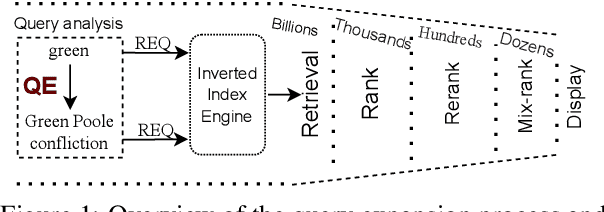Yangfan Zhang
Bayesian Model Selection via Mean-Field Variational Approximation
Dec 17, 2023Abstract:This article considers Bayesian model selection via mean-field (MF) variational approximation. Towards this goal, we study the non-asymptotic properties of MF inference under the Bayesian framework that allows latent variables and model mis-specification. Concretely, we show a Bernstein von-Mises (BvM) theorem for the variational distribution from MF under possible model mis-specification, which implies the distributional convergence of MF variational approximation to a normal distribution centering at the maximal likelihood estimator (within the specified model). Motivated by the BvM theorem, we propose a model selection criterion using the evidence lower bound (ELBO), and demonstrate that the model selected by ELBO tends to asymptotically agree with the one selected by the commonly used Bayesian information criterion (BIC) as sample size tends to infinity. Comparing to BIC, ELBO tends to incur smaller approximation error to the log-marginal likelihood (a.k.a. model evidence) due to a better dimension dependence and full incorporation of the prior information. Moreover, we show the geometric convergence of the coordinate ascent variational inference (CAVI) algorithm under the parametric model framework, which provides a practical guidance on how many iterations one typically needs to run when approximating the ELBO. These findings demonstrate that variational inference is capable of providing a computationally efficient alternative to conventional approaches in tasks beyond obtaining point estimates, which is also empirically demonstrated by our extensive numerical experiments.
Event-Centric Query Expansion in Web Search
May 30, 2023



Abstract:In search engines, query expansion (QE) is a crucial technique to improve search experience. Previous studies often rely on long-term search log mining, which leads to slow updates and is sub-optimal for time-sensitive news searches. In this work, we present Event-Centric Query Expansion (EQE), a novel QE system that addresses these issues by mining the best expansion from a significant amount of potential events rapidly and accurately. This system consists of four stages, i.e., event collection, event reformulation, semantic retrieval and online ranking. Specifically, we first collect and filter news headlines from websites. Then we propose a generation model that incorporates contrastive learning and prompt-tuning techniques to reformulate these headlines to concise candidates. Additionally, we fine-tune a dual-tower semantic model to function as an encoder for event retrieval and explore a two-stage contrastive training approach to enhance the accuracy of event retrieval. Finally, we rank the retrieved events and select the optimal one as QE, which is then used to improve the retrieval of event-related documents. Through offline analysis and online A/B testing, we observe that the EQE system significantly improves many metrics compared to the baseline. The system has been deployed in Tencent QQ Browser Search and served hundreds of millions of users. The dataset and baseline codes are available at https://open-event-hub.github.io/eqe .
Title2Event: Benchmarking Open Event Extraction with a Large-scale Chinese Title Dataset
Nov 02, 2022



Abstract:Event extraction (EE) is crucial to downstream tasks such as new aggregation and event knowledge graph construction. Most existing EE datasets manually define fixed event types and design specific schema for each of them, failing to cover diverse events emerging from the online text. Moreover, news titles, an important source of event mentions, have not gained enough attention in current EE research. In this paper, We present Title2Event, a large-scale sentence-level dataset benchmarking Open Event Extraction without restricting event types. Title2Event contains more than 42,000 news titles in 34 topics collected from Chinese web pages. To the best of our knowledge, it is currently the largest manually-annotated Chinese dataset for open event extraction. We further conduct experiments on Title2Event with different models and show that the characteristics of titles make it challenging for event extraction, addressing the significance of advanced study on this problem. The dataset and baseline codes are available at https://open-event-hub.github.io/title2event.
 Add to Chrome
Add to Chrome Add to Firefox
Add to Firefox Add to Edge
Add to Edge